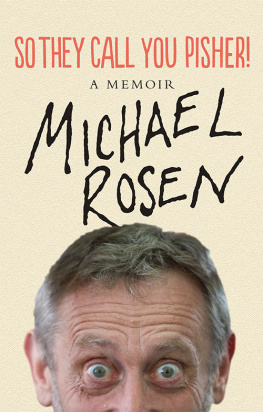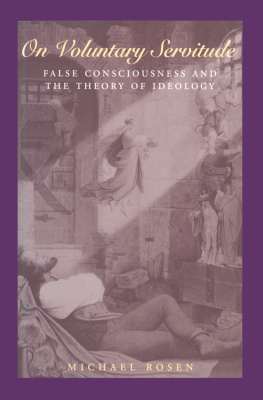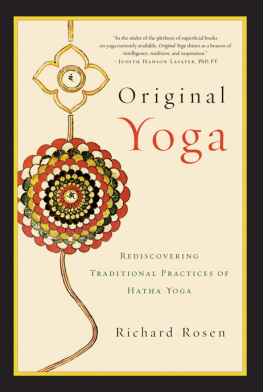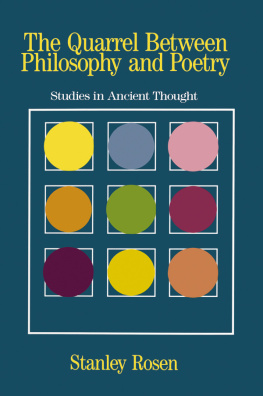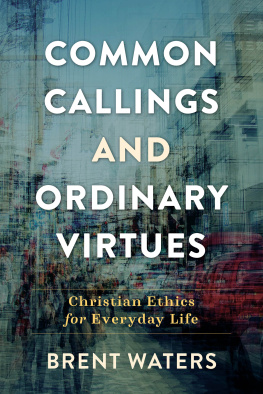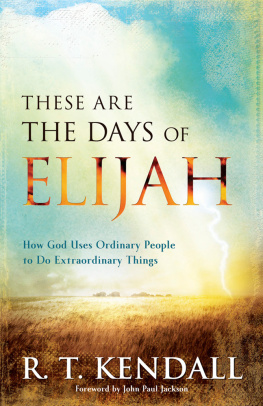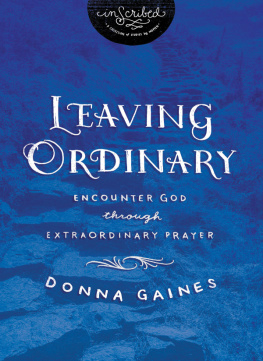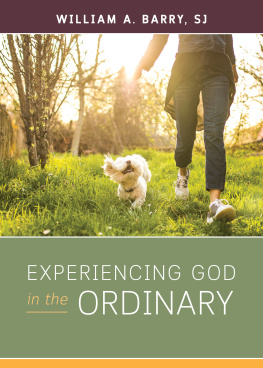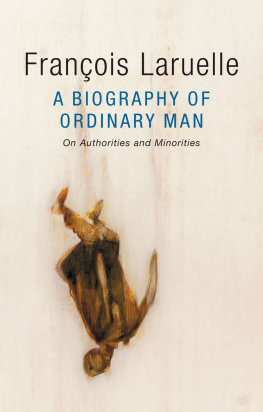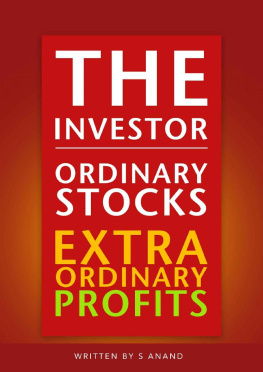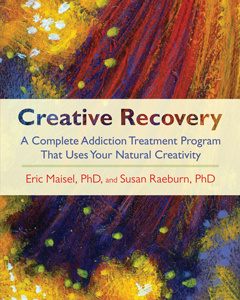The Elusiveness of the Ordinary
The Elusiveness of the Ordinary
Studies in the Possibility of Philosophy
Stanley Rosen

Copyright 2002 by Yale University. All rights reserved. This book may not be reproduced, in whole or in part, including illustrations, in any form (beyond that copying permitted by Sections 107 and 108 of the U.S. Copyright Law and except by reviewers for the public press), without written permission from the publishers.
Set in Adobe Garamond type by The Composing Room of Michigan, Inc., Grand Rapids, Michigan.
Printed in the United States of America.
Library of Congress Cataloging-in-Publication Data
Rosen, Stanley, 1929
The elusiveness of the ordinary : studies in the possibility of philosophy / Stanley Rosen.
p. cm.
Includes bibliographical references and index.
ISBN 0-300-09197-4 (hardcover : alk. paper)
1. Ordinary-language philosophy. I. Title.
B945.R526 R67 2002
149.94dc21
2001008406
A catalogue record for this book is available from the British Library.
The paper in this book meets the guidelines for permanence and durability of the Committee on Production Guidelines for Book Longevity of the Council on Library Resources.
10 9 8 7 6 5 4 3 2 1
Contents
Acknowledgments
In writing this book, I was assisted by a sabbatical fellowship from the Earhart Foundation of Ann Arbor, Michigan, and a sabbatical from Boston University in the spring semester of 2001.
Portions of this book have appeared elsewhere. The material on Kant in also appeared in slightly different form as Phronesis or Ontology: Aristotle and Heidegger, in The Impact of Aristotelians on Modern Philosophy, ed. Ricardo Pizza, Studies in Philosophy and the History of Philosophy (Washington, D.C.: CUE Press, 2001).
An earlier version of School (the 1999 Hannah Arendt/Reiner Schumann Colloquium). I am grateful to all those who commented on those papers, and more generally, to the occasions themselves, each of which led to modifications in my text. The present version of the chapter differs in important respects from its predecessors.
Introduction
In Sense and Sensibilia, John Austin warns us that we must always bear in mind the non-arbitrary character of ordinary words. He adds that we must never tamper with them before careful investigation: Tampering with words in what we take to be one little corner of the field is always liable to have unforeseen repercussions in the adjoining territory. Austin is in effect recommending that ordinary language play a regulative role in the evaluation of philosophical discourse. This is a particular version of the more general tendency in twentieth-century philosophy to take ones bearings by, or to place central emphasis on, the correct conceptual treatment of ordinary, everyday, pretheoretical experience. In the following pages, I propose to investigate the implications of this tendency.
In particular, I shall be concerned with the question of the elusiveness of the ordinary. Some philosophers have devised elaborate technical machinery for the capture and analysis of the ordinary; but even those who claim to find it ready to hand are forced to engage in theoretical justification of the function they assign it. We are accordingly led to ask whether the ordinary is not necessarily replaced within The ordinary is accessible, but it has the disconcerting feature of turning into the extraordinary even as we grasp it. The thesis that ordinary language ought to and indeed must serve as the standard against which to measure the legitimacy of philosophical diction (with the exception of technical terms and stipulated meanings) is itself problematic. The ordinary is something that we pursue.
My investigation is primarily concerned with two opposing, yet related, responses to the problem of the ordinary in modern and contemporary philosophy. These responses are the attempt to acquire conceptual mastery of the ordinary by employing the paradigm of modern scientific method, on the one hand, and, on the other, to rescue the ordinary from what is perceived to be the distortions of that same method. There are two versions of the first or scientific response, namely, the Enlightenments pre-Kantian version, and the version that reflects the pervasive influence of Kant. It is a testimonial to the importance of Kant for late-modern and contemporary philosophy that his influence is also fundamental among those who approach ordinary language and experience more directly, as a topic that is not amenable to scientific methods.
I shall proceed through studies of thinkers who represent the aforementioned orientations to the problem of the ordinary, in order to determine whether their theoretical methods are successful, or indeed even plausible. These studies will serve as the basis for some reflections of my own on the pursuit of the ordinary. The studies, to repeat, are representative, not exhaustive, and they are analytical, not primarily historical. I am almost entirely concerned with modern and in particular contemporary thinkers. But it is appropriate in an introduction to begin with a somewhat panoramic view of the problem.
According to the tradition, the first wise men were concerned either with the practical activity of techn and politics or with the formulation of general maxims about the conduct of life. Parmenides and Heracleitus, who devoted themselves to theoretical and speculative investigations of nature, paramount among which was the inquiry into being and becoming, seem not to have been interested in, and even to have belittled, everyday life and the ordinary opinions of common sense. Socrates was apparently the first to bring together what was eventually to be called theory and practice as the two dimensions of philosophical reflection. He is represented most famously in the Platonic dialogues, engaging in careful analyses of the speeches and deeds of everyday life, usually with young men and sophists, but sometimes with practitioners of the arts and professions. The city, or more precisely the life of the citizen, serves in these dialogues as the framework that unites philosophical investigation, even when philosophy pursues theoretical questions that go beyond the demands of political and practical life. The dramatic form of the Platonic dialogue exhibits the tacit thesis that theory and practice are not so much two distinct lives as two aspects of human life, at least in its best manifestations. They are not ways of understanding life so much as ways of living.
Nevertheless, theory and practice are not the same. As Socrates tells the story, philosophy emerges not from a careful analysis of everyday life and language, and not even from reflection on politics, but in wonder at the heavens and their regular movements. This wonder is deepened but at the same time made more difficult by the famous doctrine of the erotic nature of philosophy. The god (or daimon) Eros stands for the power that raises the human soul up from everyday life to the transuranian domain of the pure forms or Platonic Ideas. It is only after this erotic revelation of the extraordinary that the philosopher returns to the surface of the earth and the cities of human beings, where he or she attempts to illuminate the ordinary, and thus to direct nonphilosophers to the central question of the nature of the good life.
The Dialogues exhibit the Platonic conviction that philosophy is an extraordinary activity at which only a few can excel, but at the same time that human beings are philosophical animals. All human beings can therefore strive for what Socrates calls the Ideas, whether they know they are doing that or not. In other words, Platos
Next page

